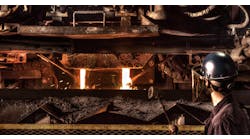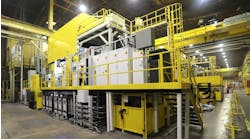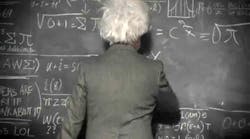Every hour hundreds of jets take off or land, moving thousands of people at hundreds of miles per hour, across hundreds of thousands of miles. It’s a remarkable confluence of science and commerce, and it’s more remarkable that most of us spend so little time pondering the improbability of it all.
I do not mean that no one thinks about the science of aeronautics, or about the seeming impossibility that something weighing several thousand tons can be made safely airborne. I mean that we no longer wonder about the implications of flying from place to place.
Humans are not unique in having the ability to relocate from one place to another, but we almost surely are the only beings to contemplate the meaning of mobility. Being bound to a particular place has a profound influence on our self-awareness, for good or ill. Some people might proudly declare their connection to a particular land or country, while others rebel against the unfair bondage to a specific place.
“Time and space are modes by which we think and not conditions in which we live,” Albert Einstein declared in the course of his mind-blowing reconsideration of matter and energy. His work was almost simultaneous with the development of aeronautic science, and it’s impossible to think there was no effect of one upon the other. He helped reshape how we think about our temporal presence, and convinced us that we are not confined to a place.
Of course, people had long been moving from one place to another before the growth of commercial aerospace – and quite consequentially. The Hebrews moved out of Egypt, the Persians and Greeks moved armies, as did many others. Marco Polo moved across the known land mass of the world, and Columbus started a new age of exploration. But, even up to the time that the Wright Brothers were redefining aeronautics and Einstein was publishing his new theories on space and time and matter, getting up and moving was an effort and a statement.
In 1917, just to pick a conveniently distant time, making a move similar to one of today’s ordinary commercial flights — New York to Los Angeles, or London — was most likely a permanent change. It would consume many weeks of time, and was sure to be life-altering.
Today, such a flight is barely worth discussing at length. Space does not confine us, and so it does not occupy our thinking or our self-awareness.
And we’ve conquered space in other significant ways. I can transmit my thoughts to you instantly by various ordinary processes or devices. I can send an image to you so that you have an identical version of the object I am examining. An idea can be converted from my visual impression into a design, and then a draft, and ultimately into a three-dimensional object – from my workspace to a workshop I may never enter, in Los Angeles or London, or anywhere.
I can “be” in your presence with video calling platforms, meaning I don’t have to move at all in order to be relocated into your presence. Is it impossible to believe that some further progression of human understanding and engineering will further erode the meaning of “space”?
Let’s not worry about what may yet happen. I wasn’t alive in 1917 but as Einstein noted I can think about and grasp the understanding of that age. I can appreciate how humans felt a need to be liberated from the confines of space — to go where they are needed or more welcome, to move about as they wish, to live where they can prosper. And I can appreciate how defying the limitations of space have made humanity thrive, even if in the process we have become less mindful of our presence in this universe, and the significance of moving through it.
But if this is right then Einstein was at least half wrong: “Space” no longer is a mode by which we think, any more than a condition in which we live. Still, “time” remains to define us, and contain us. And that trap may help explain why so many people are offended by emblems of the past, or enraged by indicators of what may yet come, rather than humbled by the impossibly good fortune to be alive today.









